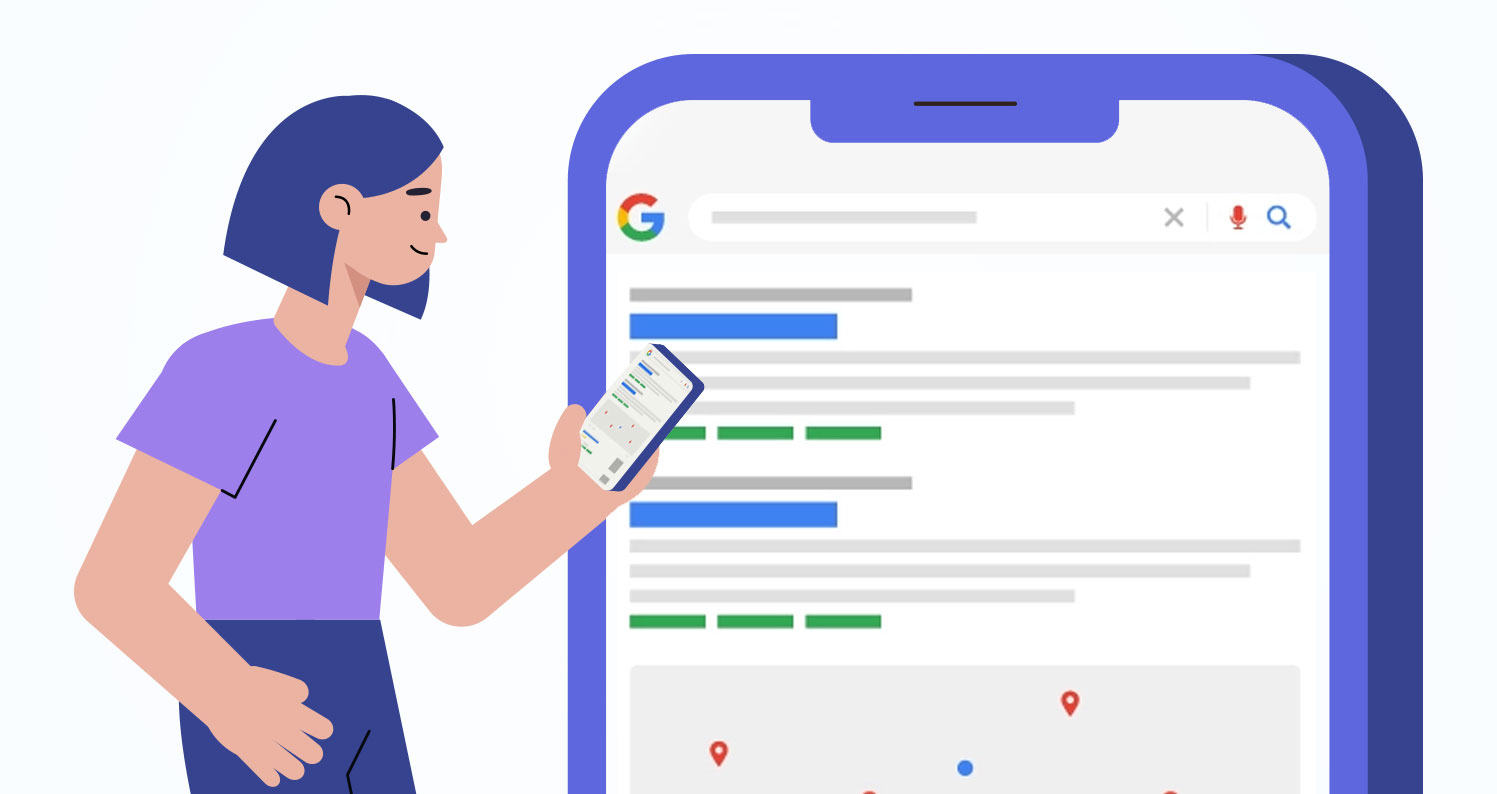Small Businesses SEO: Advanced Strategy & Tactics
Now that you’ve got the basics down, it’s time to step up your strategy. Discover advanced approaches to small business SEO with the experts at Gen3 Marketing.

If you think you’ve mastered SEO basics and have a handle on the top small business SEO priorities, you’re ready to move on to these advanced small business SEO strategies.
Doing so can further amplify your online presence, giving your business an even sharper competitive edge in organic search results.
Implement structured data (i.e., schema markup).
Structured data, or schema markup, is code added to your website to help search engines better understand your content.
Schema markup can significantly enhance how your site appears in search results. It tells Google precisely what your content means.
This matters because it can lead to better visibility and more clicks. Google leverages this markup for SERP features that can make your brand stand out in results.
The most common structured data types used by small businesses include:
- LocalBusiness: Highlights your business name, address, phone number, hours, and services clearly within results.
- Product: Displays detailed product information, such as price, availability, and ratings, directly within Google Search.
- Review: Showcases star ratings and customer reviews prominently, boosting credibility and encouraging clicks.
While not a comprehensive list, the above should give you a good starting point.
That said, many small and local business owners might find structured data a tad overwhelming.
If this sounds like you, calling in the right SEO agency can save you a ton of time and headache.
Start building organic backlinks.
Backlinks are links from other websites that point to yours. They can be very important for your site’s authority and ranking.
Keep in mind that some backlinks hold more value than others. A handful of high-quality, authoritative links can significantly outweigh dozens of low-quality ones.
Here’s how to earn valuable backlinks without resorting to spammy, black-hat tactics:
- Create share-worthy content: Publish content people naturally want to share. This includes original research, guides, infographics, or insightful blog posts.
- Guest blogging: Contribute useful articles to relevant, trusted websites within your industry.
- Local partnerships and outreach: Collaborate with reputable local businesses or participate in community events, earning links through mentions, sponsorships, or collaborations.
Focusing on quality ensures sustainable ranking improvements and avoids any possible penalties from search engines. Aim for opportunities that give you a “follow” link, as these links directly affect organic rankings.
Links tagged with the “nofollow” attribute are still worthwhile, especially if coming from sites relevant to your niche. It’s important that you keep proper link tagging in mind as part of your off-site strategy.
Once again, consider calling an SEO agency to make sure you’re taking all the right steps as part of your outreach efforts.
An experienced SEO can identify ideal link partners. They’ll also help you determine whether a “nofollow” link is worth your time.
Refine your strategy based on hard data.
Tracking the right Key Performance Indicators (KPIs) is essential to understand whether your SEO strategies are paying off.
Without clear metrics, it’s impossible to know what’s working or where you need to adjust your approach.
Every small business should track the following key metrics:
- Organic Traffic: Number of visitors arriving through unpaid search results.
- Keyword Rankings: Where you appear in search results for targeted keywords.
- Click-Through Rate (CTR): Percentage of people who see your listing and click on it.
- Conversions: How many visitors take desired actions. For example, how many people make a purchase, book an appointment, or fill out a contact form.
Tools like Google Analytics, Google Search Console, and countless paid/free tools make tracking and analyzing these metrics straightforward.
Tracking these KPIs ensures you are focusing on the tactics that matter. This is one of the most important SEO tips for small business owners aiming for steady growth.

Instant SERP check! See how your pages appear to local searchers on the go.
Avoid common pitfalls.
When it comes to SEO, knowing what not to do can be just as valuable as knowing what to prioritize.
Here are the most common SEO mistakes small businesses should avoid.
1. Neglecting local SEO opportunities.
Many small businesses mistakenly focus too heavily on trying to compete nationally instead of dominating local search results. If your customer base is primarily nearby, overlooking local SEO means you’re missing out on easy wins.
Common mistakes include:
- Neglecting your Google Business Profile, which results in poor visibility in Google Maps and local searches.
- Ignoring local citations (mentions of your business name, address, and phone number), causing inconsistency that hurts rankings.
- Failing to manage customer reviews, which heavily influence local ranking and customer trust.
These oversights make it harder for nearby customers to discover and choose your business.
2. Chasing the wrong keywords or “vanity” terms.
Not all keywords are created equal. Many small businesses mistakenly chase broad, highly competitive keywords that require significant effort and often yield little return.
Instead, prioritize high-intent keywords used by customers ready to buy or engage immediately (e.g., “emergency plumber near me” rather than “plumber”).
You should also emphasize efforts around keywords aligned closely with your niche. This ensures you attract genuinely interested visitors.
Focusing on the right keywords connects you with people who are ready act.
3. Prioritizing quantity over quality.
While regular, fresh content is important, users won’t stay on your site if it loads slowly or is difficult to navigate.
Pitfalls include:
- Publishing large amounts of content without optimizing your site’s loading speed or mobile user experience.
- Overlooking site navigation and internal linking, causing visitors (and search engines) difficulty in finding your content.
- Allowing technical issues like broken links or indexing errors to persist, preventing your content from appearing in search results.
Avoid content that is unrelated to your industry. This can dilute the signals you send search engines about your authority.
Likewise, low-quality content can lead to higher bounce rates. A “bounce” is when someone leaves your site from the same page they landed on without exploring further. This means potential customers are jumping ship before you can show them the value of your offering.
A poorly performing site can cancel out all the benefits of even your best content.
4. Creating weak, unhelpful on-site content.
Great content alone won’t always rank. Content needs thoughtful optimization to be discoverable and useful for your audience.
Typical oversights include:
- Missing or poorly optimized meta descriptions and HTML headings, making it difficult for search engines to understand your content.
- Lack of internal links within content, limiting your ability to direct traffic strategically across your site.
- Creating content for content’s sake, instead of prioritizing valuable, engaging, keyword-targeted material.
Without optimization, your content may never reach the audience meant to see it.
5. Disregarding performance data.
SEO success requires measuring performance. Many small businesses neglect tracking and analyzing their SEO data, preventing improvement.
Frequent mistakes include:
- Not tracking which strategies, keywords, or pages drive real traffic and conversions, making it impossible to replicate successes.
- Disregarding broken links, crawl errors, pages that fail to index, and other technical issues that affect overall site visibility.
Failing to monitor performance means missing out on valuable insights and repeatable results.

Quality is key when it comes to SEO success.
When should a small business turn to an SEO agency for help?
Free tools can be incredibly valuable, and many paid tools have affordable starter plans. However, effectively using these tools requires significant time, expertise, and ongoing effort. After all, just because someone knows how to swing a hammer doesn’t mean they can renovate a house.
If you’re a small business owner short on time or resources, a trusted SEO agency can simplify the process.
Our specialists leverage industry-leading tools strategically, quickly identifying opportunities, resolving technical issues, and implementing advanced SEO tactics.
Simply put, combining professional agency support with powerful SEO tools is the best way to see positive outcomes. This frees you up to focus on growing your business in other ways.
Advance your strategy further, faster! Contact us for a free SEO audit to learn exactly what we can do to help scale your success.
More Blogs
B2B Affiliate Insights & Strategies for 2026
We review what still works for B2B brands along with ways to optimize the customer journey from an affiliate marketing perspective.B2B affiliate programs are changing fast. What used to be a simple traffic-to-lead model no longer reflects how B2B buyers actually...
AI Affiliate Marketing Strategies: Winning In The AI Era
The debate continues: Is AI a blessing or a threat to the affiliate world?On one hand, AI is making shopping faster, search results smarter, and product research more personalized. On the other hand, AI is changing how users discover content and, in some cases,...
Ecommerce Search Optimization Checklist
Get your online store SEO, GEO, and AEO ready with this helpful checklist from a digital search expert.The ecommerce landscape is changing fast. Search engines now blend traditional ranking signals with AI-generated answers, localized results, and real-time product...

 By
By 

